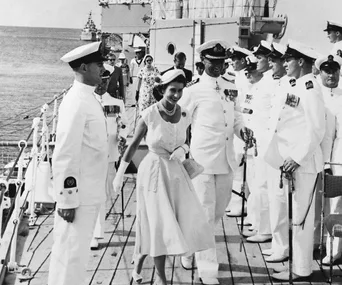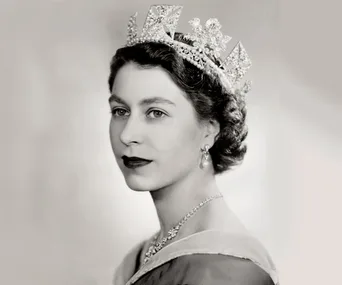1. Queen Elizabeth II
Reign: February 6 1952 – Present day. Becomes longest reigning British monarch on September 9, 2015
Princess Elizabeth received the news of her father’s death and her own accession to the throne, while staying in a remote part of Kenya. She became Queen age 25 and her coronation in 1953 was the first to be televised.
The mother of four, has reigned through five decades, devoting her life to the service of her people which include Britain and 15 other Commonwealth realms.
The key to the Queen’s success has been the monarchy’s evolution, a subtle modernising and more hands on connection with the public through events and walkabouts.

2. Queen Victoria
Reign: June 20 1837 – January 22, 1901. 63 years 6 months 27 days
Victoria was just 18 when she ascended the throne following the death of her uncle King William IV who had no legitimate heirs. She was single and had led a rather lonely sheltered childhood in Kensington Palace.
In her diary on the day she learned of her new role the new Queen wrote, “I am very young and perhaps in many, though not in all things, inexperienced, but I am sure that very few have more real good-will and more real desire to do what is fit and right than I have.”
Victoria went on to have nine children with her beloved Prince Albert and her offspring governed Europe. She ruled over the great British Empire – including Australia – and her name defined an era. But despite her powerful status the Queen had very traditional views regarding the role of women and opposed women’s suffrage.
Her most important role was as wife and mother and she descended into prolonged mourning following Albert’s death from typhoid in 1861 and withdrew almost completely form public life to Balmoral Castle, the Scottish home Albert had bought for her.

3. King George III
Reign: October 24, 1760 – January 29, 1820. 59 years 3 months 2 days
George III is best known for being mad and losing America, but neither is entirely true. It was the British Government who must shoulder the blame for the latter – the King vehemently opposed American independence and had no control over the policies that led to war. And it is now thought George is likely to have suffered from a bipolar condition and porphyria, an iron deficiency that has run in the Royal Family and that can cause seizure-like fits.
King George’s interests in agriculture and the arts are similar to those of Prince Charles, who has said George is the King he most admires. The King collated a library of 65,000 books, now in the British national library, founded the Royal Academy of Arts, one of Britain’s foremost galleries, and was known as ‘Farmer George’ for his passion for agriculture.
He was also the first king to study science as part of his education and had his own astronomical observatory.

4. King Henry III
Reign: October 18, 1216 – November 16, 1272. 56 years 29 days
Henry III was only nine when he became king assuming ultimate power from his regent in 1227.
The most significant action of his reign was the acceptance of Magna Carta, the foundation for today’s legal system and Parliament. The father of five was known for his piety and held endless extravagant religious ceremonies.
He is buried in a tomb in Westminster Abbey in London.

5. King Edward III
Reign: January 25, 1327 – June 21, 1377. 50 years 4 months 25 days
Edward III was 14 when he became King and assumed government in his own right three years later. In 1337, Edward created the Duchy of Cornwall to provide the heir to the throne with an income independent of the sovereign or the state.
Prince Charles is the current Duke of Cornwall, the longest serving Duke ever, and the Duchy estate is used to fund private, public and charitable activities.
Edward is most known for starting the Hundred Years War with France.

6. Queen Elizabeth I
Reign: November 17 1558 – March 24 1603. 44 years 4 months 5 days
Elizabeth I – the last Tudor monarch and daughter of Henry VIII and his second wife, Anne Boleyn, succeeded to the throne following her half-sister’s death in 1558. She was very well-educated (fluent in six languages), and her 45-year reign is generally considered one of the most glorious in English history as well as firmly entrenching the Church of England as the national faith.
Dubbed the ‘Virgin Queen’, Elizabeth never married, largely to protect England from dangerous alliances to European realms and it is widely thought she sacrificed personal happiness for the good of the nation, to which she was, in essence, ‘married’.



